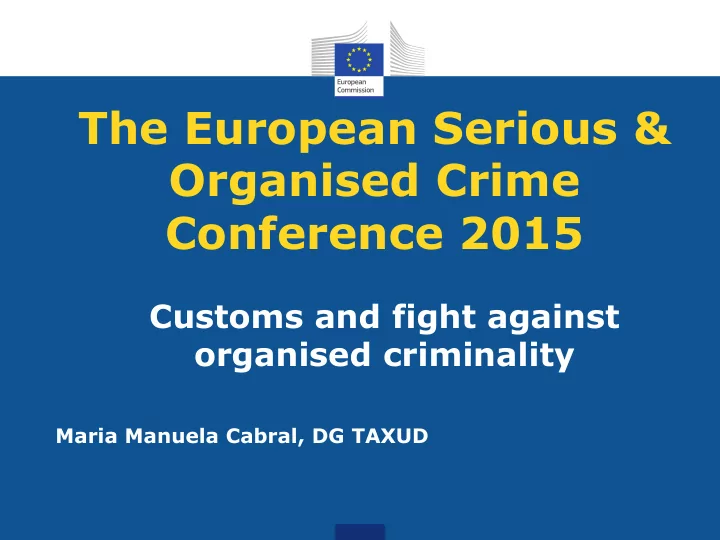

The European Serious & Organised Crime Conference 2015 Customs and fight against organised criminality Maria Manuela Cabral, DG TAXUD
• All types of infringements hurt legitimate business and society. • Even the most insignificant one creates distortions of competition and hurts one or more EU lawfully established business. • Financial impact for MS and the EU exists • Terrorism threat is more perceived by citizens/ society but may impact business seriously. Business accepts to reinforce measures to reduce this threat • Can law enforcement agencies improve synergies and focus resources: certainly
Role of customs • A) Control of goods entering leaving and transiting the EU • B) Tackling all types of risks associated: security, safety, prohibitions and restrictions, financial, independently of the reason (organised crime, fraud or simple mistake) • C) Main objective: facilitate the lawful trade while detection the risky consignments
How? • Example: • Entry of • goods
Where do customs fit in the global process? • 1- Operational daily management of international trade flows (customs) • 2- Detection (customs) • 3- Investigation (investigation units: police or customs depending on type of infringements, the national competencies and on the serious cases coordinated at EU level: OLAF, EUROPOL) • 4-Prossecution • 5-Court decision
To improve: What would customs need? What could customs offer? • Customs would need: • - information steaming from investigations to fine-tune the risk criteria or from any data mining done by investigation authorities (national, EU level) • Custom could offer: • - information on detection and or seizures and any data mining done at customs level • - information on detection of consignments matching the indicated risk criteria (e.g.: allowing for accompanied deliveries)
• Thank you for your attention • Additional sources of information: • Commission Communications: • - COM(2012) 793 of 8.1.2013 • - COM(2014) 527 of 21.8.2014
Recommend
More recommend